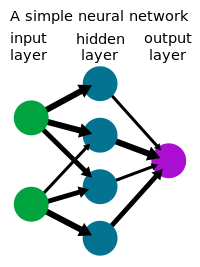
Photo from wikipedia
Residential solar photovoltaic (PV) energy is becoming an increasingly important part of the world's renewable energy. A residential solar PV array is usually connected to the distribution grid through a… Click to show full abstract
Residential solar photovoltaic (PV) energy is becoming an increasingly important part of the world's renewable energy. A residential solar PV array is usually connected to the distribution grid through a single-phase inverter. Control of the single-phase PV system should maximize the power output from the PV array while ensuring overall system performance, safety, reliability, and controllability for interface with the electricity grid. This paper has two main objectives. The first objective is to develop an artificial neural network (ANN) vector control strategy for an LCL-filter based single-phase solar inverter. The ANN controller is trained to implement optimal control, based on approximate dynamic programming. The second objective is to evaluate the performance of the ANN-based solar PV system by simulating the PV system behavior for grid integration and maximum power extraction from solar PV array in a realistic residential PV application and building an experimental solar PV system for hardware validation. The results demonstrate that a residential PV system using the ANN control outperforms the PV system using the conventional standard vector control method and proportional resonant control method in both simulation and hardware implementation. This is also true in the presence of noise, disturbance, distortion, and nonideal conditions.
Journal Title: IEEE Transactions on Sustainable Energy
Year Published: 2017
Link to full text (if available)
Share on Social Media: Sign Up to like & get
recommendations!